Jill A Goldman
age ~59
from Toluca Lake, CA
- Also known as:
-
- Jill A Foldman
Jill Goldman Phones & Addresses
- Toluca Lake, CA
- Beverly Hills, CA
- Los Angeles, CA
- Laguna Beach, CA
- New York, NY
Medicine Doctors

Jill M. Goldman
view sourceSpecialties:
Internal Medicine
Work:
Brigham Primary Physicians
1153 Ctr St STE 4070, Jamaica Plain, MA 02130
(617)9837300 (phone), (617)9837027 (fax)
1153 Ctr St STE 4070, Jamaica Plain, MA 02130
(617)9837300 (phone), (617)9837027 (fax)
Education:
Medical School
Johns Hopkins University School of Medicine
Graduated: 1983
Johns Hopkins University School of Medicine
Graduated: 1983
Procedures:
Vaccine Administration
Conditions:
Abdominal Hernia
Abnormal Vaginal Bleeding
Acne
Acute Bronchitis
Acute Conjunctivitis
Abnormal Vaginal Bleeding
Acne
Acute Bronchitis
Acute Conjunctivitis
Languages:
English
French
German
Italian
Spanish
French
German
Italian
Spanish
Description:
Dr. Goldman graduated from the Johns Hopkins University School of Medicine in 1983. She works in Jamaica Plain, MA and specializes in Internal Medicine. Dr. Goldman is affiliated with Brigham & Womens Faulkner Hospital and Brigham & Womens Hospital.

Jill H. Goldman
view sourceSpecialties:
Family Medicine, Urgent Care Medicine
Work:
Patient FirstPatient First Medical Centers
12 N Thompson St, Richmond, VA 23221
(804)3591337 (phone), (804)3589861 (fax)
12 N Thompson St, Richmond, VA 23221
(804)3591337 (phone), (804)3589861 (fax)
Education:
Medical School
Virginia Commonwealth University SOM
Graduated: 1987
Virginia Commonwealth University SOM
Graduated: 1987
Procedures:
Arthrocentesis
Destruction of Benign/Premalignant Skin Lesions
Electrocardiogram (EKG or ECG)
Pulmonary Function Tests
Vaccine Administration
Destruction of Benign/Premalignant Skin Lesions
Electrocardiogram (EKG or ECG)
Pulmonary Function Tests
Vaccine Administration
Conditions:
Abnormal Vaginal Bleeding
Acute Bronchitis
Acute Conjunctivitis
Acute Pharyngitis
Acute Sinusitis
Acute Bronchitis
Acute Conjunctivitis
Acute Pharyngitis
Acute Sinusitis
Languages:
English
Description:
Dr. Goldman graduated from the Virginia Commonwealth University SOM in 1987. She works in Richmond, VA and specializes in Family Medicine and Urgent Care Medicine.

Jill Hillmar Goldman
view sourceSpecialties:
Family Medicine
Occupational Medicine
Occupational Medicine
Occupational Medicine
Occupational Medicine
Education:
Virginia Commonwealth University (1987)
Lawyers & Attorneys

Jill Goldman - Lawyer
view sourceISLN:
907019969
Admitted:
1987
University:
Vassar College, B.A., 1984
Law School:
Villanova University, J.D., 1987
Name / Title
Company / Classification
Phones & Addresses
Principal
Carleton's Place Animal Behavior
Services-Misc
Services-Misc
240 Jasmine St, Laguna Beach, CA 92651
Cram Investors, Lp
Investor
Investor
1023 Hancock Ave, Los Angeles, CA 90069
811 Clifton Ave, Clifton, NJ 07013
811 Clifton Ave, Clifton, NJ 07013
Dancin Fool, LLC
Sale of Tshirts Printed In Africa and Ot · Nonclassifiable Establishments
Sale of Tshirts Printed In Africa and Ot · Nonclassifiable Establishments
10250 Constellation Blvd, Los Angeles, CA 90067
148 S Carmelina Ave, Los Angeles, CA 90049
148 S Carmelina Ave, Los Angeles, CA 90049
President
Still Pictures, Inc
10100 Santa Monica Blvd, Los Angeles, CA 90067
Cleopatra's Second Husband, LLC
Film Production
Film Production
1035 Fiske St, Pacific Palisades, CA 90272
Resumes

Jill Goldman, Ph.d.
view sourcePosition:
Owner at Carleton's Place: Animal Behavior Central
Location:
Orange County, California Area
Industry:
Veterinary
Work:
Carleton's Place: Animal Behavior Central since 2004
Owner
IACC 2005 - 2006
Behaviorist
ASPCA 2002 - 2004
Post Doctoral Fellow
Owner
IACC 2005 - 2006
Behaviorist
ASPCA 2002 - 2004
Post Doctoral Fellow
Education:
ASPCA: American Society for the Prevention of Cruelty to Animals 2002 - 2004
Post Doc, Applied Animal Behavior Dalhousie University
M.Sc., Ethology: Animal BehaviorWolves: Behavior and Communication York University
Ph.D., Brain, Behavior, and Cognitive ScienceComparative Psychology Non-Human Primates: Behavior and Communication Avian Audio-Vocal Communication Toronto Zoo
Post Doc, Applied Animal Behavior Dalhousie University
M.Sc., Ethology: Animal BehaviorWolves: Behavior and Communication York University
Ph.D., Brain, Behavior, and Cognitive ScienceComparative Psychology Non-Human Primates: Behavior and Communication Avian Audio-Vocal Communication Toronto Zoo
Skills:
Animals
Public Speaking
Public Speaking
Interests:
Bikram Yoga, Nature

Loss Mitigation Specialist At Ocwen Financial Services
view sourcePosition:
Loss Mitigation Specialist at GMAC ResCap
Location:
Coppell, Texas
Industry:
Financial Services
Work:
GMAC ResCap since Aug 2007
Loss Mitigation Specialist
Loss Mitigation Specialist
Education:
Southwest Texas State University
Fashion Merchandising, Arts & Sciences
Fashion Merchandising, Arts & Sciences
Youtube
Myspace
Flickr
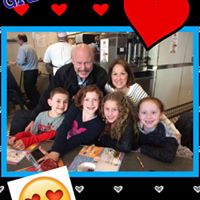
Jill Goldman
view source
Jill Goldman
view source
Jill Morgan Goldman
view source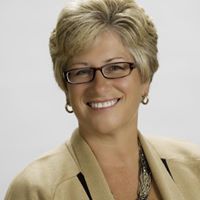
Jill Goldman
view source
Jill Smith Goldman
view source
Jill Klebba Goldman
view source
Jill Goldman Epstein
view source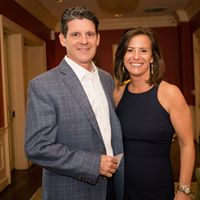
Jill Goldman MacRae
view sourceGoogleplus
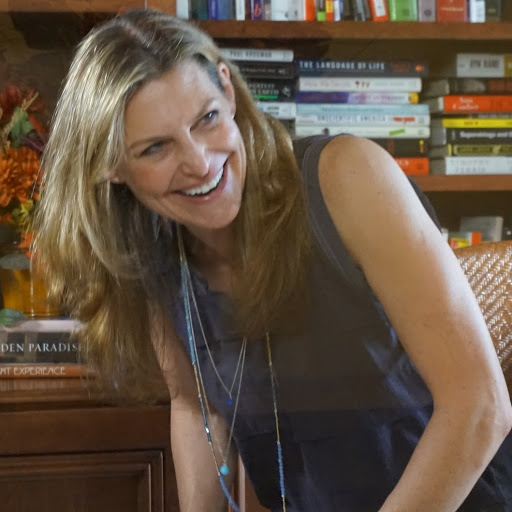
Jill Goldman
Work:
Carleton's Place - Certified Applied Animal Behaviorist

Jill Goldman
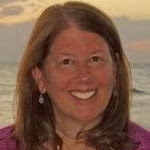
Jill Goldman

Jill Goldman
Work:
Goldman & Associates Insurance Financial Services, Inc. - President (1986)
Education:
Northeastern University - Bachelor of Sciense, Natick High School - High School Diploma
Tagline:
27 years of never ending study of insurance, retirement planning, employee benefits, and helping people
Bragging Rights:
Life, Accident, & Health, P&C, LTC, Disability, Dental, Investments, Insurance, Retirement Plans, & Securities. Securities offered through KCD Financial Inc., Member FINRA & SIPC

Jill Goldman

Jill Goldman
Classmates

Jill Weiss (Goldman)
view sourceSchools:
Emory University School of Arts & Sciences Atlanta GA 1978-1982
Community:
Diane Nappa, Brenda Agbonlahor, Hubert Townley, Frank Hawkins, April Amey

Jill Goldman
view sourceSchools:
Hazelwood Central Sr High Hazelwood MO 1972-1976
Community:
Roland Brim, Cindy Luker, Shawn Opperman, Deborah Daniels, Mark Vossmeyer, Cliff Calbert, Barbara Henke, Tammy Nitsch, Joe Arnet, John Same, Karen Kite

Jill Goldman, Newington H...
view source
Jill Goldman | W. Tresper...
view source
Northeastern University -...
view sourceGraduates:
Kate Bowen (1997-1999),
Valerie Mergupis (1982-1985),
Lisa Cleary (1986-1990),
Angela Cheng (1987-1990),
Bob Gesing (1966-1972),
Jill Goldman (1976-1980)
Valerie Mergupis (1982-1985),
Lisa Cleary (1986-1990),
Angela Cheng (1987-1990),
Bob Gesing (1966-1972),
Jill Goldman (1976-1980)

Brandeis University, Walt...
view sourceGraduates:
Jill Goldman (1983-1987),
Tobi Konikow (1965-1970),
Ken Rothman (1989-1993),
Sharon Greenfelt (1972-1974)
Tobi Konikow (1965-1970),
Ken Rothman (1989-1993),
Sharon Greenfelt (1972-1974)

Emory University School o...
view sourceGraduates:
Jill Goldman (1978-1982),
Scottie Rehring (1966-1970),
Andrew Goldberg (1988-1992),
Spencer Koch (1969-1973)
Scottie Rehring (1966-1970),
Andrew Goldberg (1988-1992),
Spencer Koch (1969-1973)
News

Rising Democratic star Pete Buttigieg enlists Barack Obama and Hillary Clinton fundraisers to build his 2020 campaign war chest
view source- Jill Goldman, a Los Angeles activist and filmmaker who was a member of Obama's 2008 national finance committee, is also behind Buttigieg. She helped Obama bring in at least $200,000 throughout his first run for the White House.
- Date: Apr 17, 2019
- Category: U.S.
- Source: Google

When illness makes a spouse a stranger
view source- frontotemporal dementia. Jill Goldman, a genetic counselor at Columbia University Medical Center, said she started the group because patients relatives felt that they did not fit in at Alzheimers groups; their loved ones were younger and often had bizarre behaviors that were nothing like Alzheimers.
- Date: May 06, 2012
- Source: Google

A rare dementia tests 'for better, for worse' vows
view source- with frontotemporal dementia. Jill Goldman, a genetic counselor at Columbia University Medical Center, started the group because patients relatives felt they did not fit in at Alzheimers groups; their loved ones were younger and often had bizarre behaviors that were nothing like Alzheimers.
- Date: May 06, 2012
- Category: Health
- Source: Google
Get Report for Jill A Goldman from Toluca Lake, CA, age ~59













